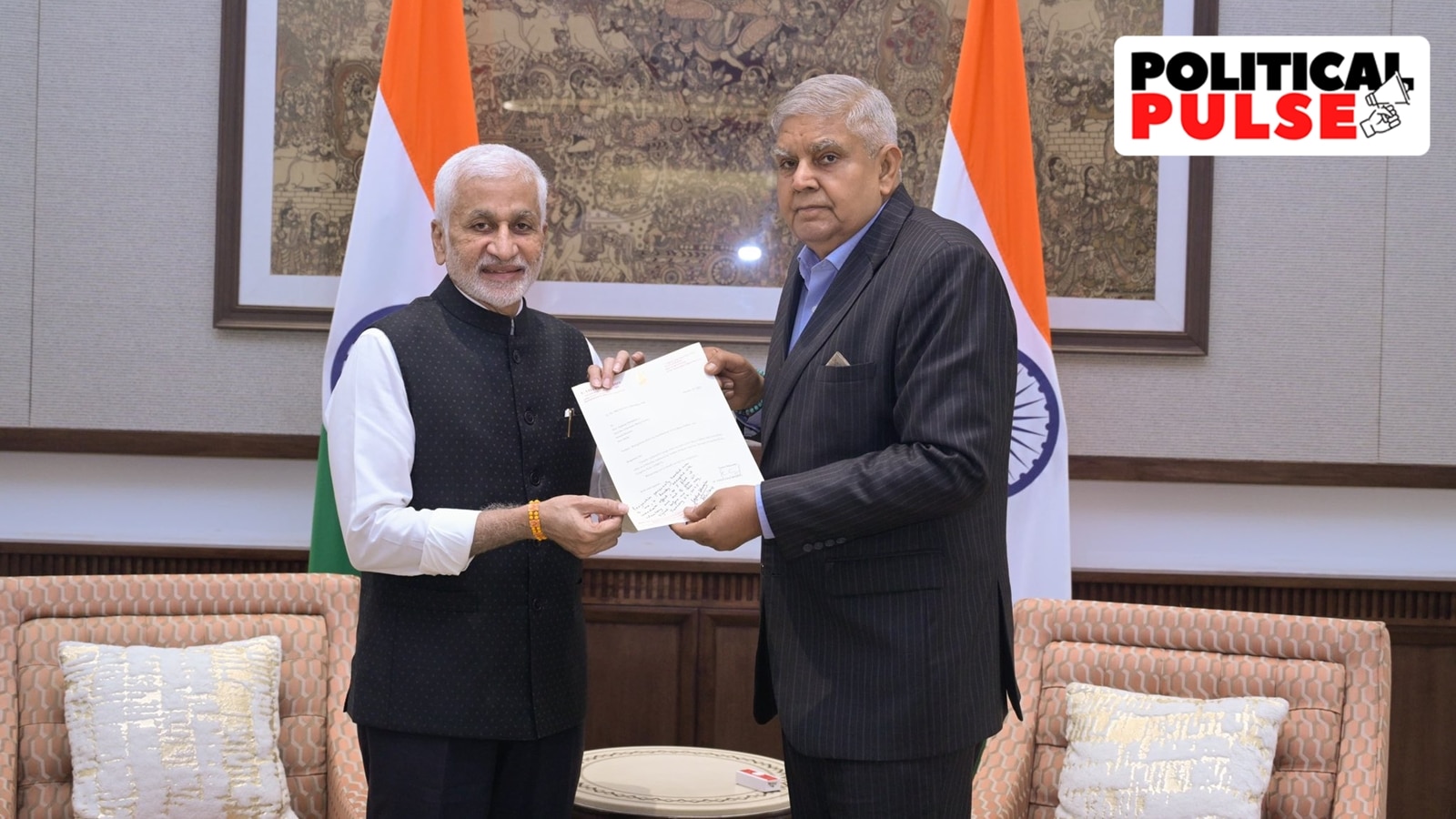 |
|
The recent resignation of V Vijayasai Reddy, a senior leader of the YSR Congress Party (YSRCP), from the Rajya Sabha and his subsequent retirement from politics has sent ripples through Andhra Pradesh's political landscape. His departure, just before the Budget session of Parliament, leaves a significant void in the party's representation at the national level. While some within the YSRCP downplay his absence, claiming a lack of shortage in capable leaders, the reality is more nuanced. Vijayasai Reddy served as a crucial bridge between the party and the central government, effectively navigating the complexities of Delhi's political arena. His departure presents a challenge to the YSRCP in maintaining its influence and negotiating its interests within the broader Indian political context.
The timing of Vijayasai Reddy's resignation is particularly noteworthy, falling closely after accusations of his alleged involvement in the controversial sale of the Kakinada port. The Enforcement Directorate (ED) is currently investigating allegations that he pressured owners to sell their shares at undervalued prices. While Reddy denies any pressure or coercion, the investigation's shadow looms large over his sudden exit. This raises questions about the true reasons behind his decision, sparking speculation amongst observers who believe the ED investigation may have played a significant role in his choice to withdraw from public life. The case, which started with a CID investigation under the previous N Chandrababu Naidu government, alleges that the sale favored Y S Jagan Mohan Reddy, the YSRCP chief and former Chief Minister of Andhra Pradesh. Therefore, it's not merely the loss of a seasoned politician but also the departure of a key figure potentially implicated in a high-profile case.
The YSRCP's response to Vijayasai Reddy's departure reveals internal dynamics within the party. While some leaders assert the party's strength and ability to quickly adapt, others openly acknowledge the loss of his political acumen and financial expertise. Reddy, a chartered accountant, had been a long-standing financial advisor to the YS family and played a vital role in managing the party's finances during its formative years. This aspect of his contribution goes beyond his political roles and highlights the multi-faceted impact of his exit. The party now faces the daunting task of finding a replacement who can not only replicate his political skills but also match his financial expertise in handling crucial party finances. The immediate focus is on the upcoming Budget session of Parliament, where his absence will be particularly felt, forcing the YSRCP to rely more heavily on its remaining representatives in Delhi.
The YSRCP's strategy in the aftermath of Vijayasai Reddy’s resignation is likely to center around its Lok Sabha floor leader, P V Midhun Reddy. He’s expected to assume a more prominent role in Delhi's political sphere, leveraging support from other YSRCP Rajya Sabha MPs like Y V Subba Reddy and Pilli Subhash Chandra Bose. However, whether Midhun Reddy can truly fill the void left by Vijayasai Reddy remains uncertain. The latter possessed a unique ability to engage with both the ruling BJP and opposition parties, fostering alliances and navigating intricate political landscapes. This crucial element of his contribution to the YSRCP is perhaps the most difficult aspect to replace. The party must now actively work to cultivate the same level of trust and influence that Vijayasai Reddy had built up over years in the national political landscape. This will involve strategic maneuvering and effective communication across diverse political entities.
Beyond the immediate leadership vacuum, Vijayasai Reddy's departure underscores deeper issues within the YSRCP. The party's recent electoral performance, particularly the setbacks during the simultaneous Lok Sabha and Assembly elections in Andhra Pradesh last year, highlight internal challenges. The claims by some party leaders that they have a wealth of experienced leaders readily available to step up may be an attempt to project confidence, but it also suggests potential internal divisions. The fact that some leaders criticize Vijayasai Reddy, suggesting he was a liability during challenging times, indicates underlying tensions. The YSRCP's ability to navigate these internal challenges and present a unified front on the national stage will be key to its future success in the absence of such a prominent and influential leader as Vijayasai Reddy.
In conclusion, while the YSRCP may claim that Vijayasai Reddy's departure is not a significant blow, the reality suggests otherwise. His resignation brings to the forefront questions regarding the party’s future strategic direction. The ED investigation's shadow, the party's internal dynamics, and the impending challenges of parliamentary proceedings all contribute to the complex picture created by his sudden exit. The upcoming Budget session will serve as a crucial test of the YSRCP’s ability to adapt and maintain its position in national politics. The success or failure of finding a capable successor to Vijayasai Reddy's intricate web of political connections will be a pivotal factor in determining the YSRCP’s influence in the coming months and years.
Source: Replacing Vijayasai Reddy: With senior Jagan aide out, YSRCP has to find a new voice in Delhi
